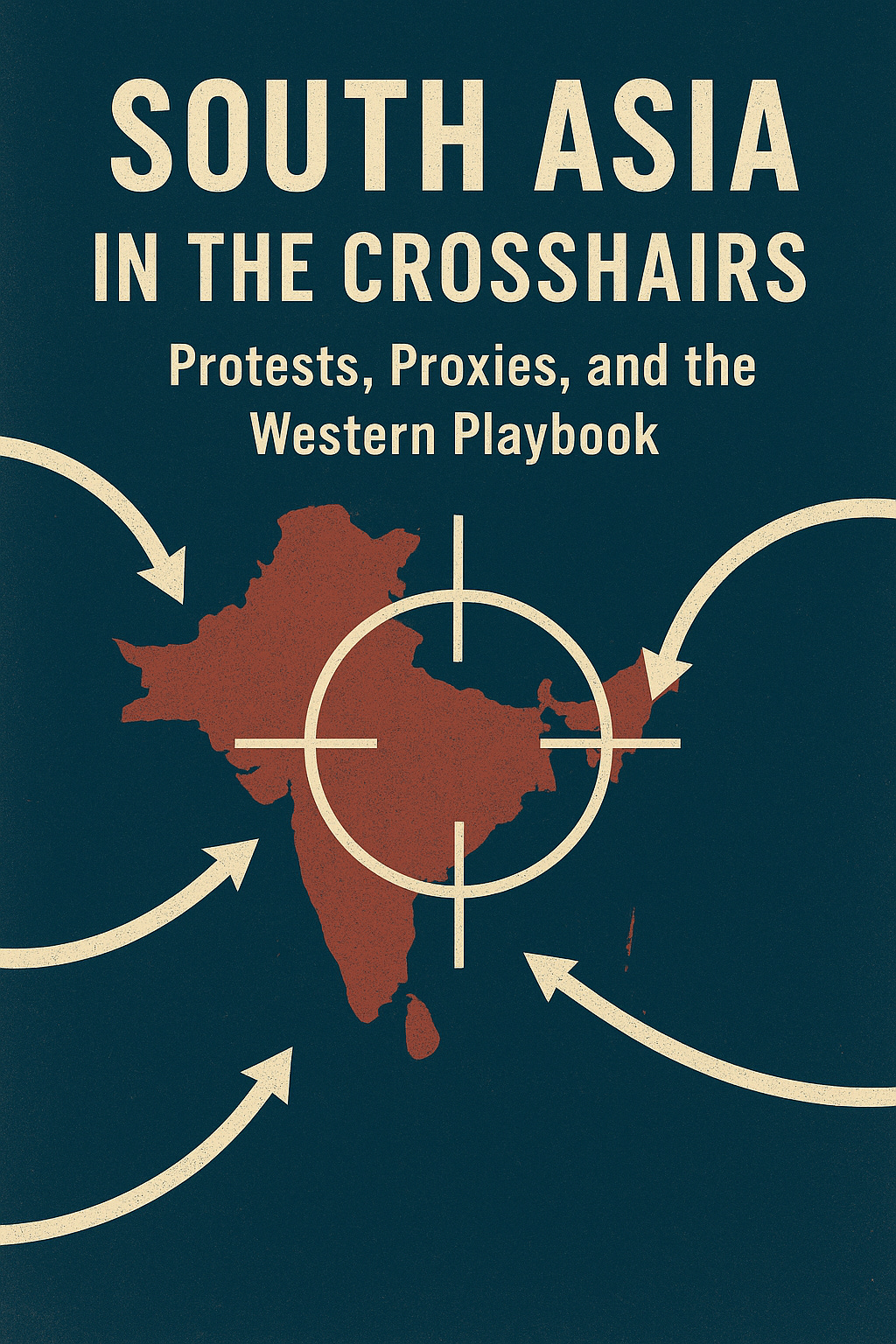South Asia in the Crosshairs: Protests, Proxies, and the Western Playbook
How external influence, student movements, and proxy leadership are reshaping the region—and what 2026 might bring.
The Pattern: Crises Amplified
South Asia has been on a political rollercoaster. From Sri Lanka (2022) to Pakistan (2023), Bangladesh (2024), and Nepal (2025), protests, student movements, and civil unrest dominate headlines—but analysts suggest there’s more behind the scenes. Alleged Deep State networks and cabals quietly amplify unrest, delegitimize institutions, and pave the way for leadership changes.
Proxies and Moral Narratives
The playbook is familiar:
Crises are magnified.
Democratic institutions are questioned.
Moral narratives are weaponized.
Western-backed proxies quietly step in.
Leaders who resist external influence often find themselves isolated, while the narrative claims the change is “homegrown.”
India: Under the Lens
India is increasingly in the crosshairs. Signs suggest external efforts to destabilize democratically elected governments through opposition support, media narratives, and trade pressures. Meanwhile, the Ukraine crisis exposes double standards: Ukraine purchases crude from India, while Western leaders preach sanctions.
India - Being Pressured with full weight
The Global Chessboard: BRICS vs. G7
The BRICS bloc grows stronger every year, offering countries alternatives to Western-dominated G7 systems. This multipolar shift is reshaping global influence and regional politics alike.
The Question for 2026
Who will face the next wave of unrest? Can BRICS and multipolar alliances blunt Western influence in South Asia? The region’s political turbulence raises a bigger question: Are these crises truly domestic, or part of a larger geopolitical playbook?
“Crises are rarely just domestic. The real story is often hidden in proxies, narratives, and networks behind the scenes.”
Video Credits- DEF TALKS BY ADI ACHINT
Conclusion
South Asia’s unrest isn’t just local—it’s a chessboard where proxies, narratives, and global influence decide who wins and loses. Every upheaval warns: sovereignty and democracy are under subtle but persistent pressure. As 2026 approaches, one question remains: who will be next, and can the region reclaim control over its own destiny?



